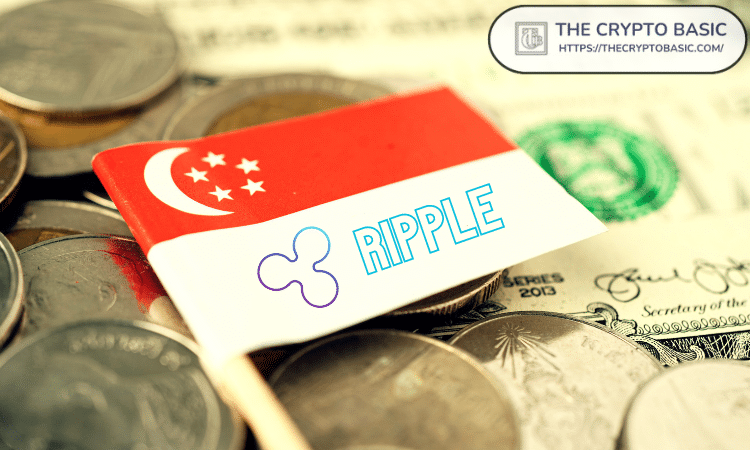Fiona Murray, Managing Director for Asia Pacific at Ripple, has revealed that Singapore handles more than 50% of Ripple’s digital asset payment flows.
Murray made this revelation during a panel session at the recently concluded Token 2049 conference held in Singapore. XRP community figure Eddie, aka “Crypto Eri,” called attention to the statement in a post on X.
During the session, Murray emphasized the growing significane of Singapore as a hub for Ripple’s cross-border payment services. She stated that the U.S. does not play a substantial role in these operations due to regulatory uncertainty.
Singapore Helping Ripple’s Payment Operation
Ripple has established Singapore as a key location for its global payments network. It takes advantage of the city-state’s clear regulatory framework and support for Web3 innovation.
Murray highlighted Ripple’s Digital Payment Token (DPT) license, granted by the Monetary Authority of Singapore (MAS), as a vital asset that allows Ripple to operate and sell digital tokens legally within the country.
Notably, the DPT license was granted in October 2023 following a provisional authorization in June. The full approval has enabled Ripple to run its digital payment operations efficiently. These include custody solutions, forthcoming stablecoin launches, and real-time settlement processes, all from its base in Singapore.
Furthermore, MAS’s clarity and support have allowed Ripple to collaborate with some of the world’s largest financial institutions, enabling them to use digital assets like XRP for real-time cross-border settlements.
Murray noted that Singapore’s stable and transparent regulatory environment and willingness to engage with Web3 companies have been key factors in Ripple’s decision to scale its operations there.
Singapore Takes 50% Flow, US Flows “Not Worth Mentioning”
Murray contrasted this with the U.S. regulatory landscape, stating that the lack of clarity there has stifled innovation. This has driven Ripple to focus more on jurisdictions like Singapore, the UK, Europe, and the UAE, where regulators are more progressive.
“Innovation has moved elsewhere,” she remarked. Murray explained that these regions have partnered with the private sector to create an environment conducive to digital asset development and use.
In this context, Murray emphasized that over 50% of Ripple’s global payment flows through digital assets are routed via Singapore. Conversely, she noted that figures from the U.S. are “not worth mentioning” in comparison due to the significant gap.
“It really does make a big difference to have a forward-thinking regulator,” the Ripple director concluded.
Disclaimer: This content is informational and should not be considered financial advice. The views expressed in this article may include the author’s personal opinions and do not reflect The Crypto Basic’s opinion. Readers are encouraged to do thorough research before making any investment decisions. The Crypto Basic is not responsible for any financial losses.











